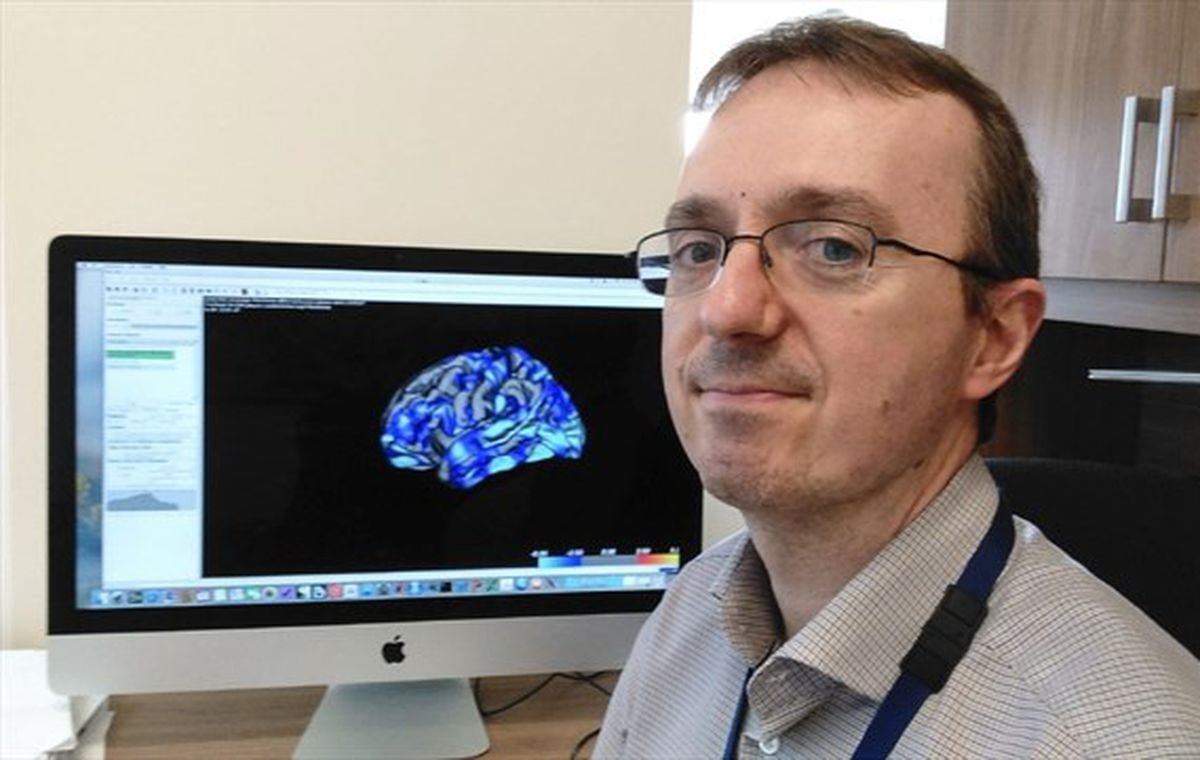Interview with Dr. Luciano Minuzzi, Interim Director of the Neuroscience Graduate Program
Author: Tegan Hargreaves

Dr. Luciano Minuzzi is the current acting Director of the Neuroscience Graduate Program here at McMaster University. Dr. Minuzzi was appointed the program’s acting director in December 2021 and continues to hold the position entering the Fall 2022 semester. We were fortunate to sit down with Dr. Minuzzi before the start of the new school year and ask some questions about his career and his role as the program director.
At McMaster you teach the NEUROSCI 715 course; how has that changed over the last 10 years?
I unofficially/informally started NEUROSCI 715 as a postdoctoral fellow because I always liked statistics and enjoyed discussing it with other members of my lab. We would sit around one computer and work on statistical problems together. A colleague suggested making it a more formal course, and with the support of the program’s director and my new faculty appointment, NEUROSCI 715 became an official course. Every year I learn a little bit more about what my students and the course need, and I try to adjust the curriculum every semester. When I’m preparing for classes, I try to consider what students will ask and what may be unclear. I am hoping to run it this upcoming Fall 2022 semester and think it is beneficial for all Neuroscience students for their statistics knowledge.
What is your role in the department as the acting director?
Currently, my focus is to keep the program running well and ensuring that students are enjoying their time in the program. The Neuroscience Graduate Program ran very well under Dr. Kapczinski’s leadership, I strive to ensure that it continues to run well. I also recognize long of a journey graduate school is and how much it impacts students’ lives, so I want to make sure students are happy with the way the program is running.
What can students approach you to discuss?
I think one of the major strengths we have as a program is that we aren’t too small, in that it’s always the same people making improvements, but it’s not too big that you’re just a number. Students can approach me with anything they need to discuss; there’s not anything I feel uncomfortable talking about. I’m always open to talking about ideas or suggestions for the program, especially since it is important to me the program continues to succeed and that students are happy.
What advice would you give to students?
I think both the personal and academic aspects of being a graduate student are important to address.
On a personal level, making sure that you have a life, friendships, and a support system outside of your academics is integral to success. As we have learned over the COVID-19 pandemic, mental health is very important, which is especially true in graduate school. Any program will take up a lot of time and energy; even though we give 100% of ourselves to our program, it’s important to have a life outside of that. I think having good routines with socializing, physical activity, hobbies, exploring the city and surrounding area, and having a good lifestyle outside of the lab is very important in creating work-life balance.
Academically, my biggest advice is that there are so many things to learn, and it is a continuous process. One of the best things you can do is have a consistent schedule that allows you to constantly learn and to try to develop yourself more each day. Additionally, asking questions is very important. Researchers, by nature, are curious people and graduate school is the time for you to develop your curiosity. Give yourself the freedom to be curious, learn, and question everything. Next, having open and frank conversations with your supervisor is very important. It’s an opportunity for you to learn from someone who has a lot of experience in your research area of interest, and they want you to succeed. Last, developing basic skills, like statistics and writing, is important for your success in graduate school. Writing is a skill that is crucial as a scientist or researcher; every single person who is a researcher has to be a writer as well. Instead of writing just before a deadline, I’ve found it helpful to write every day because it has allowed me to improve and develop my drive for writing.
Any final thoughts or words of encouragement?
As we are hopefully going towards the end of an atypical time in our lives, the importance of work-life balance has become much clearer. Academic life is amazing; it’s a way for us to help the world and build little bricks of knowledge. Sometimes we may take these things for granted because we think we’re only helping a small number of people; however, we’re possibly helping many people by improving the knowledge of what we’re studying. The work we do is incredibly important. Enjoy this moment and your time in graduate school, but make sure to be balanced and enjoy your time outside of the lab too. It’s an amazing journey that you won’t regret.
Thank you very much to Dr. Minuzzi for taking the time out of his busy schedule to talk with us! We look forward to your continued dedication to the Neuroscience Graduate Program and getting the opportunity to chat with you more in the future.